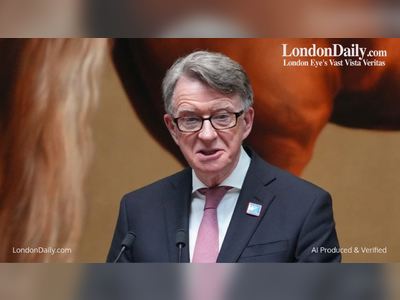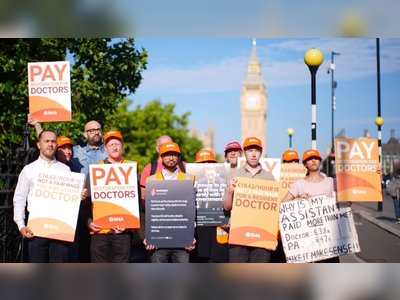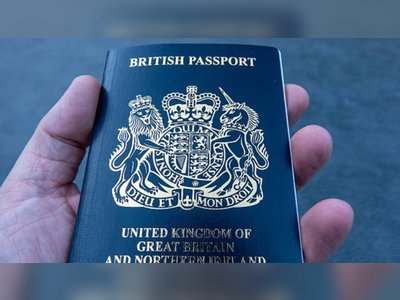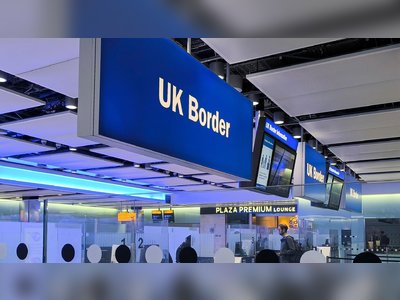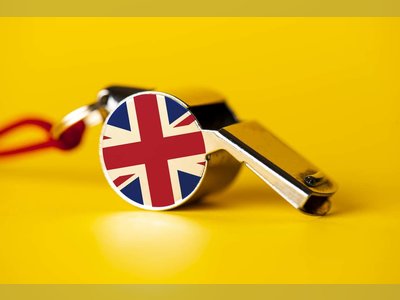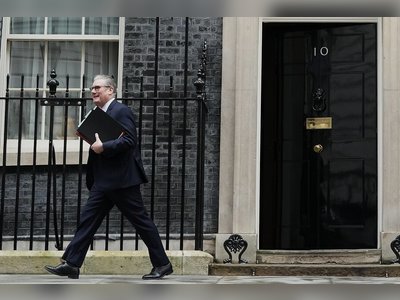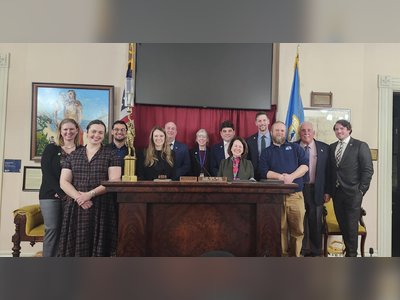
Boris Johnson's suspension of parliament unlawful, supreme court rules
The decision was read out by Lady Hale, the president of the supreme court. Unusually, none of the parties were provided with advance copies of the judgment due to its extreme sensitivity. Only seven of the 11 justices who heard the case were present in court.
The first legal question the judges had to resolve was whether the prime minister’s decision – exploiting residual, royal prerogative powers – was “justiciable” and could consequently be subjected to scrutiny by the courts. The English high court declined to intervene; the Scottish appeal court concluded that judges did have legal authority to act.
In a unanimous verdict, the court ruled that Johnson’s decision to prorogue parliament could be examined by judges, overturning the ruling of the high court in London.
Delivering judgment, Hale said: “The question arises in circumstances which have never arisen before and are unlikely to arise again.”
Then, giving the court’s judgment on whether the decision to suspend parliament was legal, Hale said: “This court has … concluded that the prime minister’s advice to Her Majesty [ to suspend parliament] was unlawful, void and of no effect. This means that the order in council to which it led was also unlawful, void and of no effect should be quashed.
The key paragraphs in the supreme court's verdict:
That the court judgment was not about Brexit
“It is important, once again, to emphasise that these cases are not about when and on what terms the United Kingdom is to leave the European Union. They are only about whether the advice given by the prime minister to Her Majesty the Queen on 27 or 28 August, that parliament should be prorogued from a date between 9 and 12 September until 14 October, was lawful and the legal consequences if it was not.”
That the court had the right to act
“The first question is whether the lawfulness of the prime minister’s advice to Her Majesty is justiciable. This court holds that it is. The courts have exercised a supervisory jurisdiction over the lawfulness of acts of the government for centuries.“
That the prorogation was not ‘normal’
“It prevented parliament from carrying out its constitutional role for five out of the possible eight weeks between the end of the summer recess and exit day on 31 October. Proroguing parliament is quite different from parliament going into recess. While parliament is prorogued, neither house can meet, debate or pass legislation. Neither house can debate government policy. Nor may members ask written or oral questions of ministers or meet and take evidence in committees…This prolonged suspension of parliamentary democracy took place in quite exceptional circumstances: the fundamental change which was due to take place in the vonstitution of the United Kingdom on 31 October. Parliament, and in particular the House of Commons as the elected representatives of the people, has a right to a voice in how that change comes about. The effect upon the fundamentals of our democracy was extreme.”
That Boris Johnson’s advice to the Queen was unlawful
“The court is bound to conclude, therefore, that the decision to advise Her Majesty to prorogue parliament was unlawful because it had the effect of frustrating or preventing the ability of parliament to carry out its constitutional functions without reasonable justification.“
That parliament has not been prorogued
“This court has already concluded that the prime minister’s advice to Her Majesty was unlawful, void and of no effect. This means that the order in council to which it led was also unlawful, void and of no effect and should be quashed. This means that when the royal commissioners walked into the House of Lords it was as if they walked in with a blank sheet of paper. The prorogation was also void and of no effect. Parliament has not been prorogued. This is the unanimous judgment of all 11 Justices.”
What happens next?
“It is for parliament, and in particular the Speaker and the Lord Speaker, to decide what to do next. Unless there is some parliamentary rule of which we are unaware, they can take immediate steps to enable each house to meet as soon as possible. It is not clear to us that any step is needed from the prime minister, but if it is, the court is pleased that his counsel have told the court that he will take all necessary steps to comply with the terms of any declaration made by this court.”
DOWNLOAD: The full judgment and the summary judgment
“This means that when the royal commissioners walked into the House of Lords [to prorogue parliament] it was as if they walked in with a blank sheet of paper. The prorogation was also void and of no effect. Parliament has not been prorogued.”
Hale continued: “It is for parliament, and in particular the Speaker and the Lord Speaker, to decide what to do next. Unless there is some parliamentary rule of which we are unaware, they can take immediate steps to enable each house to meet as soon as possible. It is not clear to us that any step is needed from the prime minister, but if it is, the court is pleased that his counsel have told the court that he will take all necessary steps to comply with the terms of any declaration made by this court.”
She added: “The court is bound to conclude, therefore, that the decision to advise Her Majesty to prorogue parliament was unlawful because it had the effect of frustrating or preventing the ability of parliament to carry out its constitutional functions without reasonable justification.”
The judgment said: “This was not a normal prorogation in the run-up to a Queen’s speech. It prevented parliament from carrying out its constitutional role for five out of a possible eight weeks between the end of the summer recess and exit day on 31 October.
“Parliament might have decided to go into recess for the party conferences during some of that period but, given the extraordinary situation in which the United Kingdom finds itself, its members might have thought that parliamentary scrutiny of government activity in the run-up to exit day was more important and declined to do so, or at least they might have curtailed the normal conference season recess because of that.
“Even if they had agreed to go into recess for the usual three-week period, they would still have been able to perform their function of holding the government to account. Prorogation means that they cannot do that.”
The court stopped short of declaring that the advice given by Johnson to the Queen was improper. It was a question they did not need to address since they had already found that the effect of the prorogation was itself unlawful.
While speculation before the ruling was that the court would find against the prime minister, the fact that the decision is unanimous came as a surprise. Most commentators had anticipated a split decision, as there was in the article 50 judgment in 2017.
Responding to the judgment, the Commons Speaker, John Bercow, said he would recall parliament on Wednesday at 11.30 am for urgent questions to ministers.
Neither of the two main lawyers who represented the government, Lord Keen QC and Sir James Eadie QC, were in court to hear the news of their crushing defeat. Most of their submissions were directed towards the somewhat arcane legal argument that the case was solely political and therefore “non-justiciable”.
The ruling also overturns the decision by three of the most senior judges in England and Wales, including the lord chief justice, who earlier this month found in favour of the government that they did not have the legal authority to intervene.
Lawyers for the Scottish claimants and for the businesswoman and campaigner Gina Miller argued that, in suspending parliament, Johnson was motivated by an “improper purpose” – namely avoiding parliamentary control over his policies. MPs and peers, they urged, should be recalled this week.
